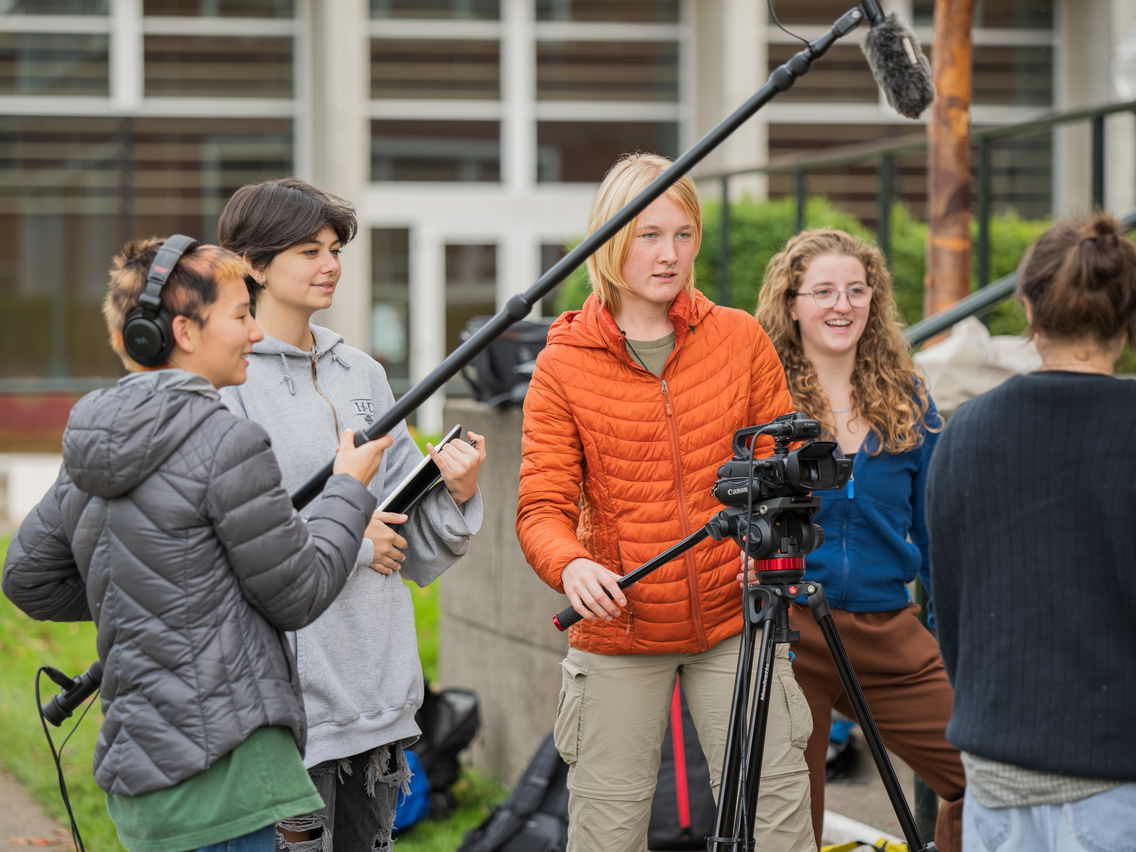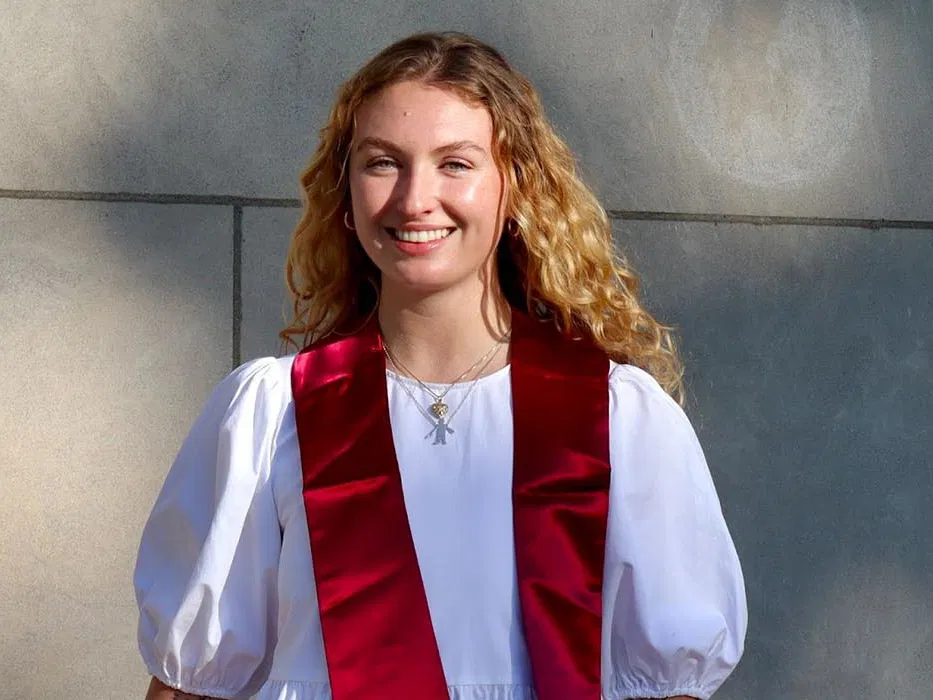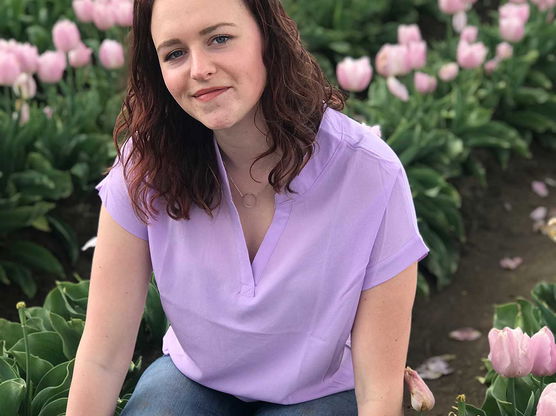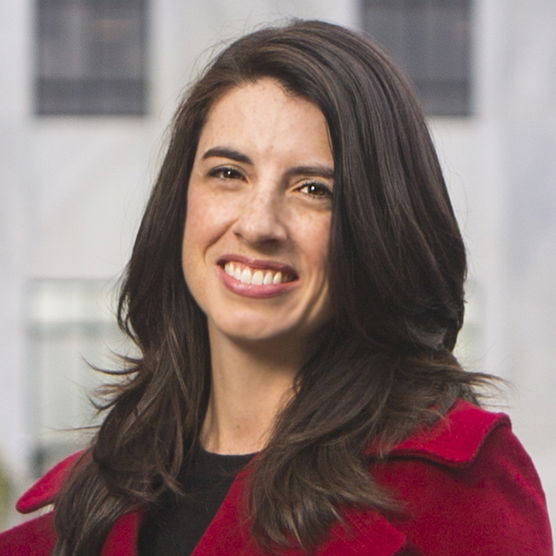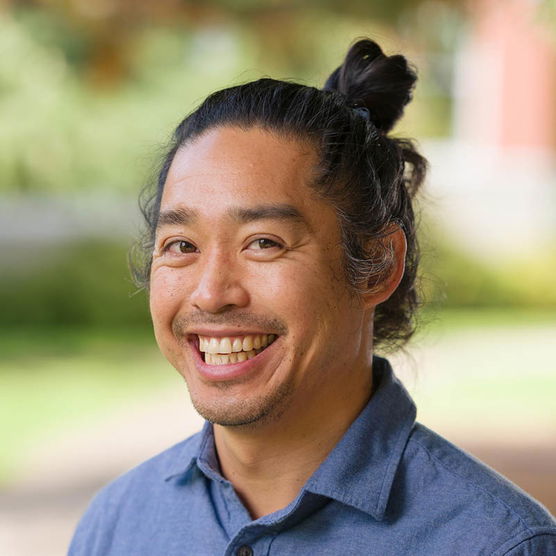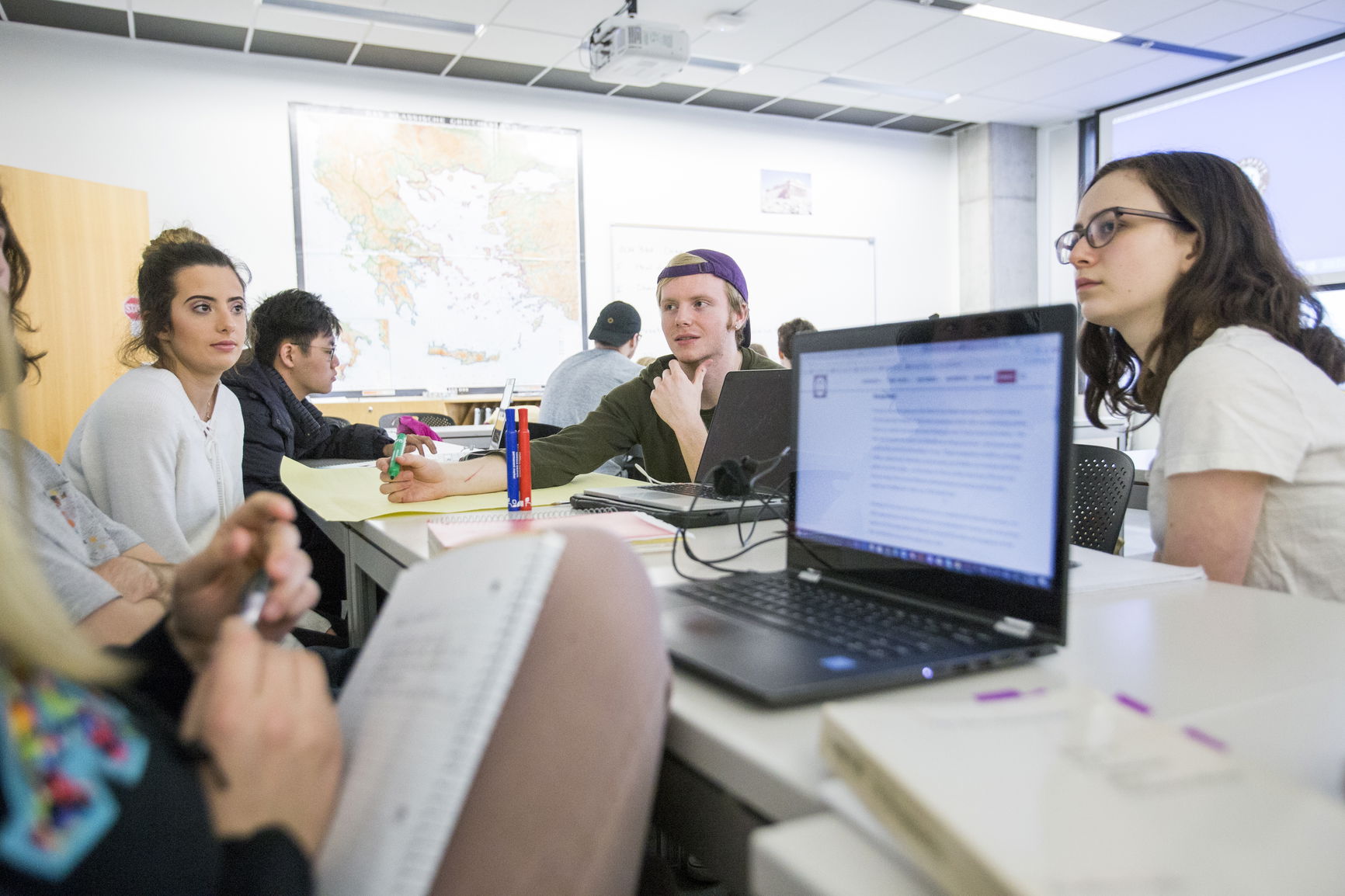Study how people use media to engage the world, define debates, construct identity, develop arguments, and effect change. Find your voice by analyzing rhetoric and media in civic life. Go beyond the classroom to develop your skills.
Why choose Communication and Media Studies at Willamette?
- Education goes beyond the classroom. Civic communication and media studies majors can apply their knowledge directly to the real world. Consider the Debate Union, find an internship, or complete a major project through the Senior Seminar.
- We emphasize civic engagement. Learn how to shape the future through written and oral communication. Located directly across from the Oregon State Capitol, our campus offers a unique opportunity to participate in state government.
- Supportive and holistic learning environment. We offer small class sizes, our faculty invests in students, and our curriculum embraces other academic fields. Dialogue impacts society in a variety of ways, which is why its concepts extend into other disciplines.

